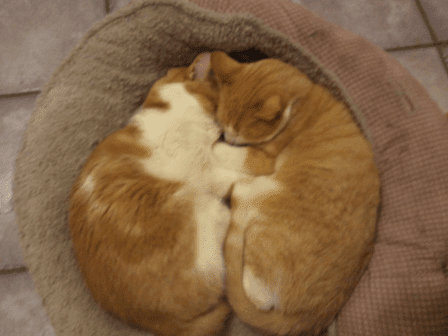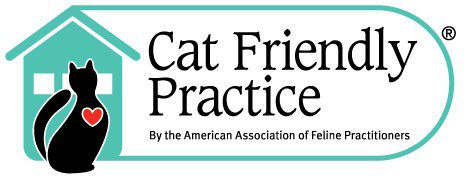Pet Selection
So, you’re thinking about getting a pet. There is more to consider than you may actually think. If you are thinking about a dog or cat, you must sign on to years of commitment. If you interested in making a bird part of your family, some birds can live 50-80 years with proper housing & diet! Therefore, research bird species carefully before making your decision. If you are looking at a rabbit, ferret and/or a pocket pet (hamsters, guinea pigs, rats, chinchillas, etc.), they require their own special care.
Let’s take a look at some specifics of your potential choice…

Dogs-> you need to take a realistic look at your lifestyle. Do you have enough space in your home/apartment for a dog? What kind of yard do you have or is there a place to provide adequate exercise? Do you have the time to commit to daily exercise? Are you gone long hours where your dog would be alone? If you are considering a puppy, do you have the time to spend to train as needed (remember puppies cannot make it an 8 hour work day without a potty break!)? Are you able to afford veterinary visits to keep your dog healthy and for those unexpected health issues?
There are MANY breeds of dogs each with their own unique characteristics to consider before deciding which one to get. Be sure to look closely at these and ask yourself if you can provide the type of lifestyle this breed needs. Do not be selfish and get a dog because it is “cool” or has “status” attached to it. Our veterinary nurses Kay and Mendi and our veterinary nurse assistant Rhonda have all been through additional training on helping you select a pet so feel free to set up a time to meet with them one on one.

Cats-> they are NOT small dogs!! Whether an adult or kitten, make sure cats have lots of room to run, jump and play. Provide them with toys, perches and multi-levels for jumping, which mimic their natural instincts in the wild. Bored cats are destructive cats!! Exercise is also the best way to avoid a fat, lazy cat. This opens a whole new set health problems (diabetes, arthritis and heart disease just to name a few). Although cats tend to be more independent than dogs, make sure you spend quality time playing and interacting with your cat. This will help reduce the fear and anxiety many cats have when faced with meeting new people. It will also make it much easier to bring them to veterinary exams which are needed at least yearly and we recommend 2 times a year throughout their life!!
Exotics & Pocket Pets-> these include rabbits, ferrets and rodents such as hamsters, gerbils, mice, rats and guinea pigs. These pets rely on you for food, shelter, exercise/play, love and attention. Most are “chewers”, so have safe wood chew toys available at all times. It is vital that they receive plenty of water and a diet specific to their needs. Their cage must be an appropriate size and well-constructed. It is crucial to clean their cage on a daily basis so that they are kept clean, dry and comfortable with a complete washout and clean up once a week. Most of these pets “live in their bathroom”, so cleanliness cannot be stressed enough with these critters. Just because they are small does not mean that they do not need care and attention!!
Birds-> do I really want a bird in MY house?? This is the question you must ask yourself when you are serious about adding a bird or birds to your home. The right choice will reward you with many years of pleasure while the wrong bird can result in pain and frustration. Do you mind cleaning your house? Is noise a problem with close neighbors or yourself; how about the apartment situation? How much space can be given to your bird? How long are you prepared to keep a bird that may live 50+ years? These are only a few of the questions you must ask yourself and honestly answer!! Research your bird of choice thoroughly and carefully before making a decision and understand all that is required of you to be the bird owner your bird deserves!! Having a bird is kind of like having a perpetual 2 year old child. Check out the MAARS website for more information on birds.
Reptiles-> There are many different species of pets classed as reptiles. They include snakes, lizards, and turtles. Different species of reptiles require very different care. Proper research is critical before adopting a reptile. Understanding how big your pet will grow is vital to provide proper housing and to know what you are in for – that 1 foot iguana is cute but when they are 4 feet long and whipping their tail at you…maybe not so cute anymore. A properly secured enclosure is important as well to avoid your reptile escaping (snakes are regular Houdini’s). Providing adequate space to allow your reptile to warm up and cool down in their environment is a must! It’s important to have the cage cleaned properly and often (weekly!). Knowing the nutritional needs of your reptile will ensure a healthy life. Be sure to research carefully as feeding an improper diet is harmful to your reptile. If you are squeamish about feeding one animal to another – getting a snake might not be the best idea for you. Just like any other pet, twice yearly veterinary visits are recommended to make sure your reptile is healthy. Reptiles usually give little to no signs of illness until they are quite sick, so keep track of their eating habits and activity levels. Any significant changes may indicate illness and veterinary intervention is crucial.
With all this to think about…weigh your choices carefully. Adding the right pet to your family is truly a gift. Giving a pet the right family and the life they deserve is the best gift you can give them!! This way, it is definitely WIN, WIN for everyone!!!












